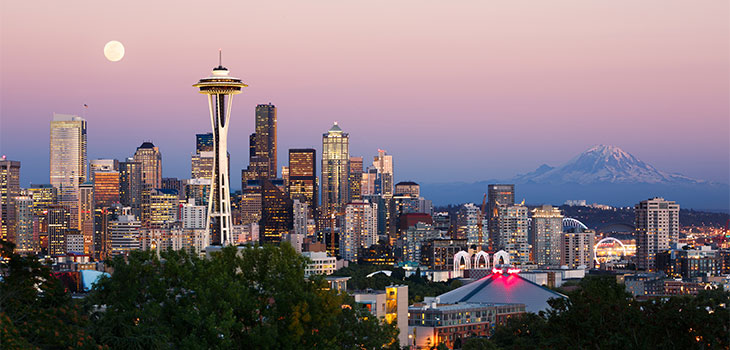There is something quietly unsettling about returning home after being away. You turn the key, open the door, and step into your familiar world. Everything is exactly as you left it. The furniture sits in its usual places, the air smells the same, and the light still falls through the windows in the same way. Yet it feels as if something invisible has shifted. The house has been waiting, still and patient, while you have been somewhere else. You walk through the rooms like a visitor, aware that you are both home and not quite home.
This odd sensation is one that almost everyone knows. It is not sadness exactly, nor is it joy. It is a mixture of both, a strange in-between feeling that makes you pause. Coming home can feel both comforting and foreign because travel changes how you see things, even the ordinary ones. You have stepped outside your routine, seen how other people live, tasted other food, and moved through unfamiliar streets. When you return, your own life looks a little different, and that difference takes time to absorb.
A Change in Perception
While you are traveling, your senses stay alert. You notice details that you might overlook in daily life. Every sound, every face, every smell carries meaning. You are awake in a way that is hard to maintain at home. You study maps, figure out directions, and pay attention to every meal because nothing is automatic. The mind loves novelty, and travel feeds it constantly.
This heightened state of awareness makes time feel slower and fuller. A single day abroad can hold more impressions than a week at home. The brain stores more information when it encounters new experiences, so the memories expand and fill space. When you come home, time contracts again. Routine returns, and life feels smaller and faster. The contrast is what makes the ordinary seem almost unreal.
There is also a biological side to this feeling. When you are away, your brain releases chemicals that heighten excitement and focus. They keep you alert and eager to explore. Once you return, those levels drop. The change leaves a quiet emptiness that feels like loss, even if you are happy to be home. The world that felt wide and vibrant suddenly narrows to the familiar sights of your own street.
Seeing Home with New Eyes
Travel reshapes how you see the place you come from. When you walk back into your own home, you see it from a slightly different angle. You may notice the clutter you ignored before or appreciate small comforts that once seemed unimportant. The ordinary becomes visible again, but it does not feel the same.
This happens because travel changes you, even in small ways. You have learned new rhythms and adapted to other environments. You might have learned to live with less, to walk more, to eat differently, or to talk with strangers. When you return, the habits of home do not fit perfectly anymore. The version of yourself that left is not exactly the one who came back.
The sensation can feel like a quiet split in time. Life at home continued while you were gone, but you were living another version of time somewhere else. Now both versions exist inside you. Your body has returned, but your thoughts still drift to where you were. You may unpack your suitcase and still half-expect to find the sound of a city street or the smell of salt air hiding in your clothes.
The Slow Process of Return
Reentry takes patience. You might unpack, do laundry, check messages, and try to settle into routine, but it takes longer for your mind to catch up. It can feel as if part of you is still on the road. You wake up in your own bed and, for a second, forget where you are. The light seems wrong, the silence too thick.
Psychologists often call this the reentry effect. Even short trips can reset your internal rhythm. You adapt to the pace of somewhere else, and when you come home, that pace no longer matches. The contrast can make you restless or even sad. You might find yourself longing for small things you took for granted while away, such as walking everywhere or hearing another language around you.
At the same time, you start to reflect. You begin to see what the trip meant, what it revealed about what matters to you. When you travel, your days are packed with motion and discovery. Back home, reflection fills the empty space. You may realize how much you value calm or how much you crave change. Travel always shows you something about yourself, even if it takes time to understand what that is.
The Quiet After the Journey
There is also a peculiar emptiness that follows the end of adventure. While you were away, each day had purpose. You woke with a plan, a map, a sense of possibility. When you return, the absence of that structure feels strange. Even simple chores like cooking or answering emails seem disconnected from the person you were while traveling.
This is why home can feel smaller. The boundaries of your world suddenly close in. The rooms that once felt warm can appear dull. The view from your window lacks the spark of the landscapes you just left behind. The quiet that once soothed you now feels too still. Yet within that stillness lies the beginning of reconnection. The brain and body need rest to process all that they have seen. What feels like emptiness is often recovery.
Finding Balance Again
To ease the transition, it helps to carry parts of your journey into daily life. You might cook a dish you discovered abroad, listen to the sounds of a place you visited, or print a photo that captures how you felt while you were there. Small reminders can bridge the gap between your travels and your home life.
It also helps to see travel not as an escape but as an extension of who you are. The curiosity and openness that guide you on the road can exist at home too. You can walk a different route to work, visit a new park, or talk to someone you have never spoken to before. The spirit of discovery does not belong only to distant places.
Planning your next trip can also help, not out of restlessness but as a reminder that movement is part of living. Knowing that another adventure will come makes the return easier to accept. The goal is not to chase constant novelty but to stay awake to life, whether near or far.
Home, Renewed
Eventually, the strangeness fades. You wake up one morning and the house feels like yours again. The air smells familiar, the streets look right, and the rhythm of ordinary life begins to fit. But something remains different. The world feels a little wider, and you sense that you have grown into it.
Coming home after a trip feels strange because travel momentarily changes the lens through which you see life. It opens your senses, expands your mind, and stretches your idea of comfort. When you return, you must fit that expanded self back into a space that has stayed the same. The mismatch creates the feeling of disconnection, but it also brings clarity.
In time, you realize that the purpose of travel is not only to see new places but to return home with new eyes. The strangeness you feel is a reminder that you have experienced something real and that the world is far bigger than your daily routine. When that feeling softens, what is left is gratitude. You know that home will always be waiting, and that the person who walks back through the door will never be exactly the same as the one who left.




